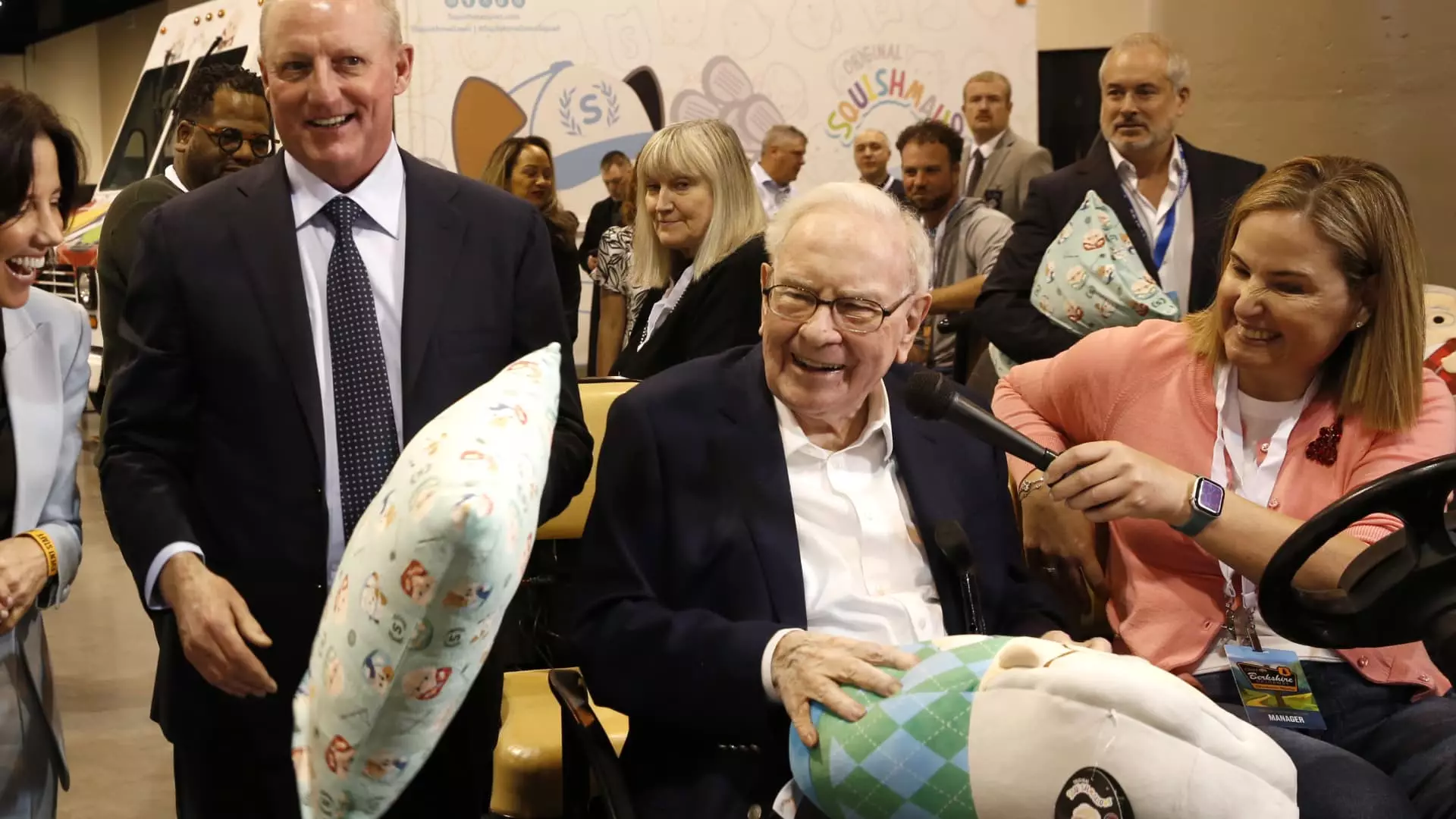The tapestry of American business history is woven with the stories of titans, and few loom larger than Warren Buffett. As he announced his plan to step down as the CEO of Berkshire Hathaway, a murmur of disbelief swept through the gathered crowd of 40,000 shareholders in Omaha. At the venerable age of 94, Buffett, affectionately dubbed the “Oracle of Omaha,” is surrendering the reins to his chosen successor, Greg Abel, as Berkshire aims to uphold its monumental legacy and navigate the increasingly complex world of global finance. This shift is not merely a change in leadership but a seismic event that could redefine the landscape of corporate America.
Buffett’s Calculated Departure
Buffett’s decision to pass the torch is not simply a result of his age; it’s a meticulously crafted transition level with his unmistakable touch of strategic foresight. By announcing this shift during the annual shareholder meeting—a platform where he has historically captivated audiences with his insights—Buffett ensures that no one is caught off guard. His respectful acknowledgment of Abel reflects his deep understanding of corporate culture, where continuity is crucial. The legacy he leaves behind is staggering; having transformed a failing textile mill in 1965 into a sprawling conglomerate with a market cap nearing $1.2 trillion, Buffett is stepping down at a high point.
Despite facing the challenges that coming of age in the 21st-century economy presents, Buffett’s faith in Abel augurs well for Berkshire’s future. Interestingly, he highlighted Abel’s energetic approach as a vast improvement over his own laid-back style, emphasizing that strong leadership must intertwine diligence with opportunity. Buffett has planted firm seeds of confidence in Abel’s capabilities, stating that he believes Berkshire will thrive under Abel’s stewardship.
The Abel Era: Continuity Amid Change
As the torch is passed to Greg Abel, who has been at Berkshire since its acquisition of MidAmerican Energy in 2000, the spotlight shifts toward what this new leadership will entail. The sentiment surrounding Abel’s appointment conveys reassurance rather than fear, showcasing a leadership style primed for responsiveness in an era characterized by rapid change. Abel’s lengthy tenure offers him a robust understanding of the company’s diverse subsidiaries. By bringing a more hands-on approach, Abel prepares to diversify Berkshire’s portfolio even further while maintaining Buffett’s foundational value investing principles.
Despite his successful track record with MidAmerican and prior experience at CalEnergy, it is Abel’s potential for innovation that stands out. His ability to navigate modern investment landscapes while adhering to Buffett’s patient capital allocation philosophy sets him apart as a capable leader for these challenging times. This juxtaposition of innovation grounded in tradition may very well solidify Berkshire’s position well beyond Buffett’s departure. If successful, this approach can exemplify that legacy doesn’t just mean mimicking past success but adapting those principles to modern challenges.
The Future Awaits: Shareholder Sentiment and the Board’s Role
The reactions among Berkshire’s board and its shareholders further underscore the monumental significance of this transition. Ron Olson, a board director, expressed a sense of awe mixed with anticipation regarding Buffett’s new role—drawing parallels between him and the ever-candid Charlie Munger. This endorsement highlights the intrinsic value that Buffett still holds, even as he exits the role at the top. The future may not merely hinge on Abel’s decisions; rather, it will be a collaborative spirit that keeps Buffett’s essence alive within the company.
As the board convenes shortly to formalize this transition, uncertainties linger over Abel’s potential appointment as chairman. Buffett’s son, Howie, is often referenced as the likely choice for the position. This intertwined family element calls into question the future dynamics of control and culture within the company, raising crucial questions about maintaining Berkshire’s longstanding values amidst inevitable generational shifts.
In a corporate ecosystem where leadership transitions often spell chaos, Buffett has masterfully orchestrated his exit as a new beginning rather than an end. The entry of Greg Abel into the CEO position signals both continuity and the promise of evolution. This unfolding chapter tests not only Abel’s capability but also demonstrates Buffett’s belief that enduring success at Berkshire Hathaway is a collective journey. As shareholders in attendance celebrated the legacy of an unparalleled leader with a standing ovation, the anticipation of witnessing what’s next is palpable. Indeed, as we venture into this new era, the spirit of Warren Buffett will be the compass guiding Abel and Berkshire Hathaway, charting a course through uncharted waters with the hope that tradition and innovation can coexist harmoniously.

